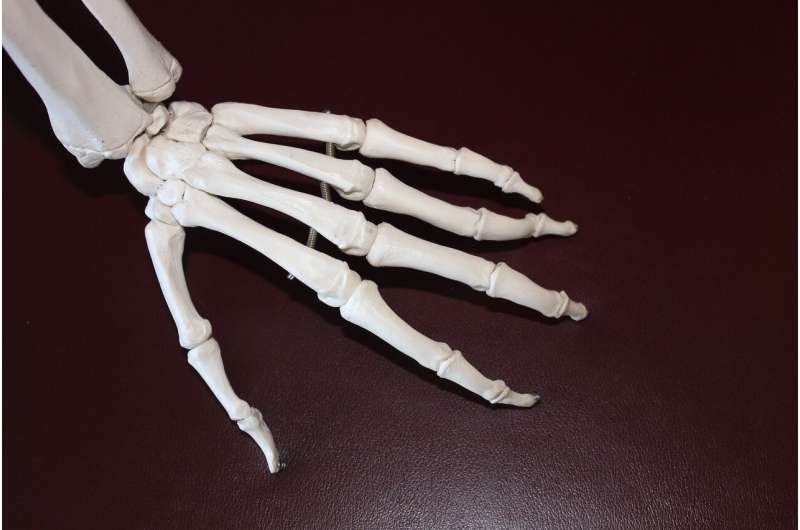Early and intensive treatment of rheumatoid arthritis reduces fatigue

Disease-related, profound fatigue impairs the quality of life of many people with rheumatic and musculoskeletal diseases. A Belgian study has now concluded that early intensive treatment combining methotrexate with a bridging scheme of prednisone can reduce the onerous fatigue—this also applies to patients at low risk of a severe course. The European League against Rheumatism (EULAR) therefore recommends, that even in so-called low-risk patients, early consideration should be given to whether intensive treatment should be initiated.
Patients with rheumatoid arthritis (RA) suffer from chronically inflamed joints. The inflammatory processes in the body can lead to a feeling of weakness, exhaustion, and lassitude—this abnormal tiredness is called "fatigue." Such fatigue is poorly helped by resting and can accompany patients constantly or at least over long distances.
"In addition to pain, profound fatigue reduces the quality of life for many people, even more than the swelling of the joints," explains EULAR President Professor Dr. Iain B. McInnes from Glasgow, Scotland, UK. However, doctors often do not pay sufficient attention to this fact and do not adjust the therapy accordingly.
A recent Belgian two-year study has now examined the question of whether early intensive treatment of RA directly after diagnosis has a positive influence on the course of the disease and offers an opportunity to manage the fatigue. Using the same approach, it also examined whether these mechanisms also apply to patients who have a lower risk of a severe disease progression.
"Up to 90 percent of patients with rheumatoid arthritis report profound fatigue," says Dr. Diederik De Cock, Katholieke Universiteit Leuven, Belgium, who conducted the study together with his team. Fatigue has a major impact on patients' lives and is perceived by many as difficult to manage. "The early course of the disease could provide an opportunity to manage fatigue."
Eighty patients with a low risk profile were selected for the study—this risk profile is based, among other things, on a low disease activity status. Randomized into two groups of 38 and 42 patients, the subjects received, directly after diagnosis of RA, monotherapy with 15 mg methotrexate weekly or a combination therapy of 15 mg methotrexate weekly plus cortisone (prednisone) starting at 30 mg but tapered weekly to 5mg. Methotrexate suppresses the disease and acute inflammatory reaction, while prednisone has a strong anti-inflammatory effect and is suitable for reducing pain and inflammation of the joints very quickly.
The result: Patients who received intensive treatment with the combination therapy of both drugs for two years were less tired than the patients in the monotherapy control group—even though the disease activity in both groups were comparable over time. The levels of fatigue seemed to differ more and more over time between groups.
"This underlines the importance of initiating optimal, intensive treatment early on, even in so-called low-risk patients," says EULAR Scientific Chair of the Congress, Professor Dr. John Isaacs from Newcastle University, UK. Unfortunately, this is not yet standard practice. The study clearly shows how fatigue levels in early RA can be significantly improved, the congress president concludes. About one percent of all people worldwide suffer from rheumatoid arthritis—according to figures published by EULAR in the run-up to its annual congress.
More information: De Cock D, Nooyens A, Pazmino S et al. Treating early and intensively is associated with lower fatigue levels on the long term, even in patients with early Rheumatoid Arthritis considered to have a favourable risk profile. DOI: 10.1136/annrheumdis-2020-eular.3160

















